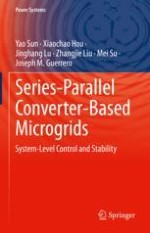Series-Parallel Converter-Based Microgrids: System-Level Control and Stability is the first book to provide a comprehensive and in-depth introduction to the rapid development of series-parallel converter applications in the microgrid system. It provides an advanced and in-depth introduction into all major system modeling, coordinated control, and stability analysis issues, and provides useful methodologies and philosophies for developing new topologies and controls for self-organized decentralized operation of microgrid systems. For each topic, a theoretical introduction and overview are backed by very concrete programming examples that enable the reader to not only understand the topic but to develop microgrid simulation models.
